Common Health Issues in Cats According to Life Stages
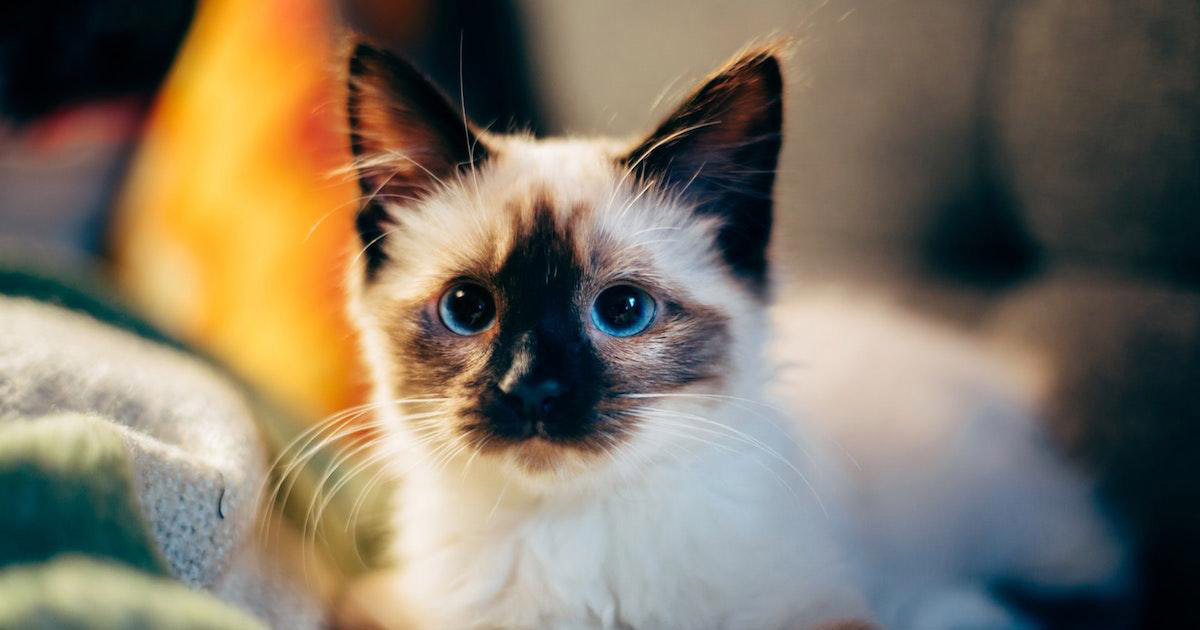
Cover image source: Nirzar Pangarkar on Unsplash
If you don’t know by now, cats are notoriously good at hiding their pain and discomfort. World-class actors feigning a clean bill of health, this behaviour is a self-preserving instinct passed down from their ancestors because injury and illness paint a target on their back to nearby predators when living in the wild.
So, how are you supposed to know if your cat is feeling unwell? Besides developing a good sense of what your cat’s daily habits, routine, and behaviour are like so that you can detect subtle changes, it helps to be aware of the common health problems that arise at every life stage. This way, you will have a clearer idea of what warning signs to look out for, or the precautions to take to minimise the risk of those ailments occurring.In general, a cat goes through six life stages:
Note: The information provided in this article covers the most common health problems in every life stage, but it is by no means exhaustive as every cat has unique health needs. Please consult your vet immediately if you need medical advice concerning your cat.
Kitten (0 – 6 months)
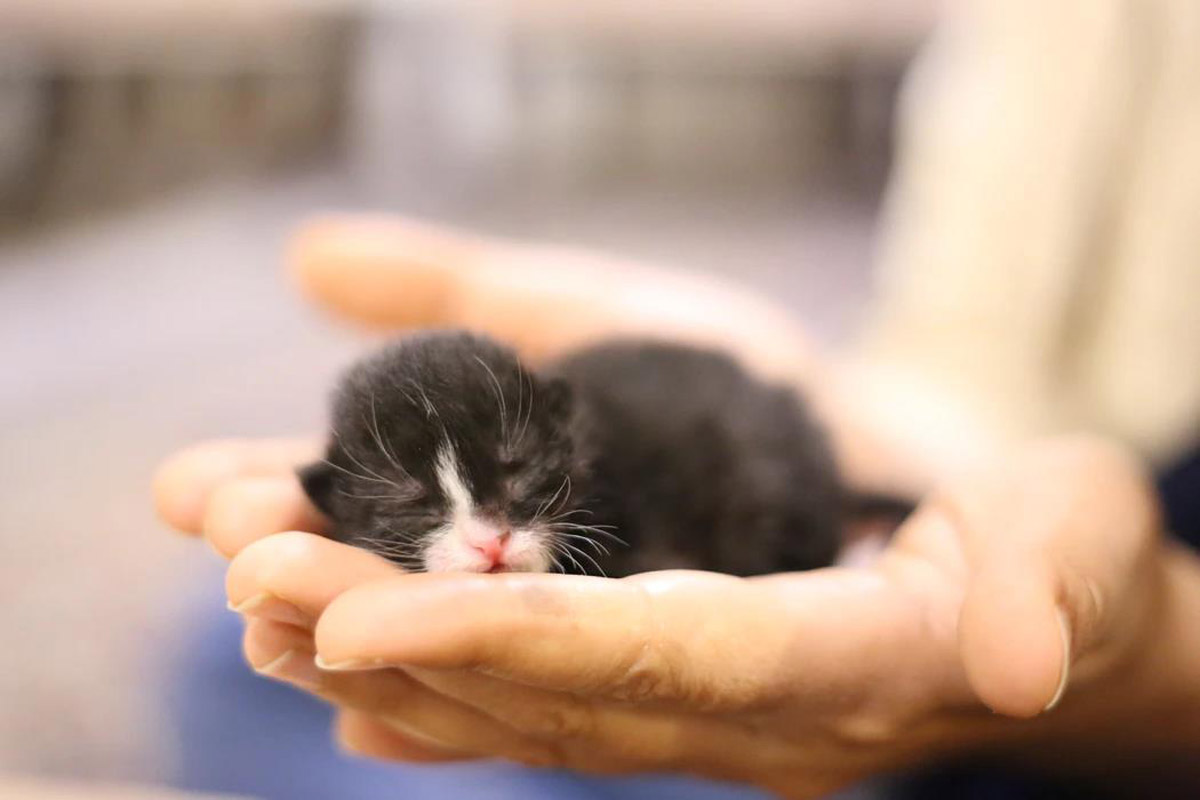
Source: Sahand Babali on Unsplash
Milk from a mother cat can contain intestinal worms, so many young kittens are infected with these worms the moment they drink their mother’s milk shortly after birth. During pregnancy, the larvae of roundworms and hookworms can also cross the placenta into the fetus, so it’s very important to start deworming your kitten early!
Intestinal worms include roundworms, hookworms, and tapeworms, and are a must to protect your pet against as they reside in the small intestines and deprive their host of nutrients, cause diarrhoea, and can damage the intestinal lining enough to reduce its ability to digest and absorb nutrients.
Typically, treatment for intestinal worms will start at around 3 weeks of age with treatments given every 2 weeks until 9 weeks of age, when monthly treatment will continue until the kitten is 4 to 6 months old.
Your vet will also recommend a primary series of vaccinations as well as protection against heartworm and fleas for your kitten!
Junior (7 months – 2 years)
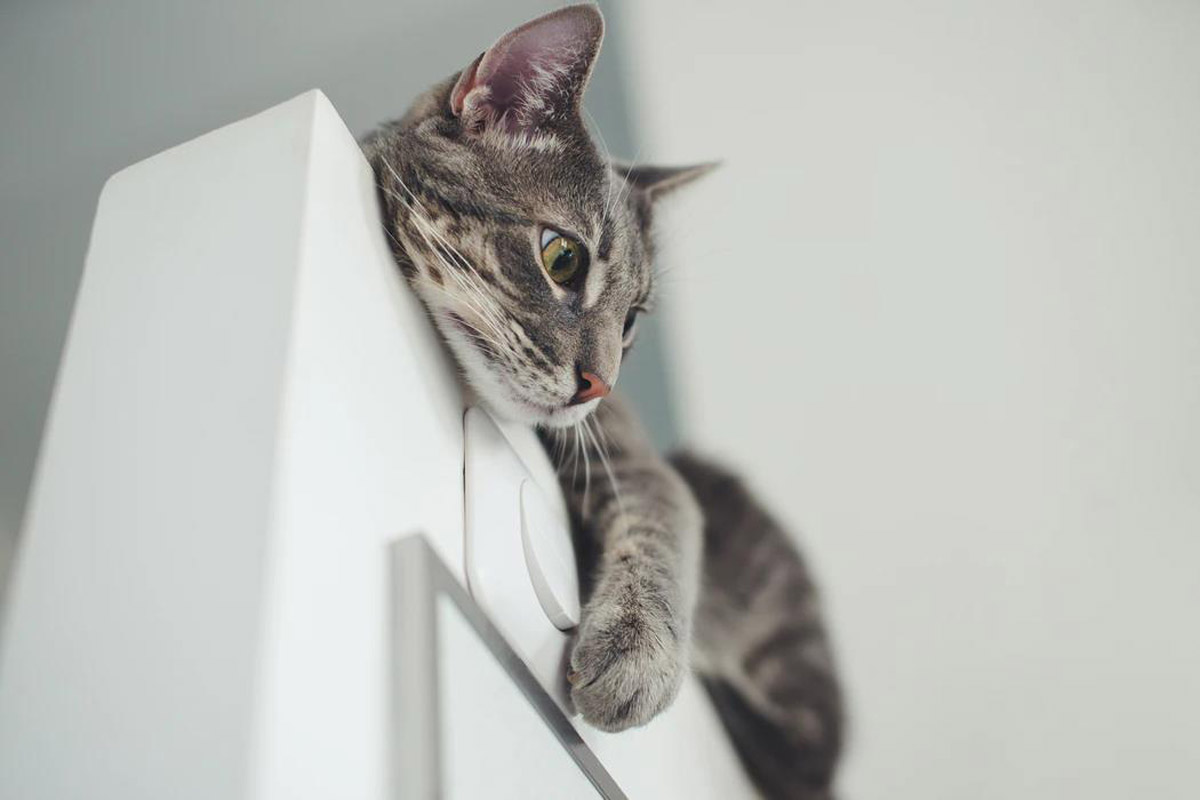
Source: Kazuky Akayashi on Unsplash
Junior cats are active and at an age where they love to explore and play! Due to this, common health problems for cats of this life stage include infectious disease and injuries related to trauma.
However, your cat should have already gotten its core vaccination against these infectious viruses, such as feline calicivirus, feline parvovirus (distemper), and feline herpesvirus (rhinotracheitis). It may have also gotten non-core vaccines which are for protection against leukaemia and feline immunodeficiency virus (FIV). All it needs is a booster vaccination given at around one year of age.
If your cat has been neutered or spayed, you will also have to monitor its diet and body weight! Desexing will cause your cat’s metabolic rate to decrease, so if there’s no change in its food intake, your cat will gain weight.
Adult (3 years – 6 years)
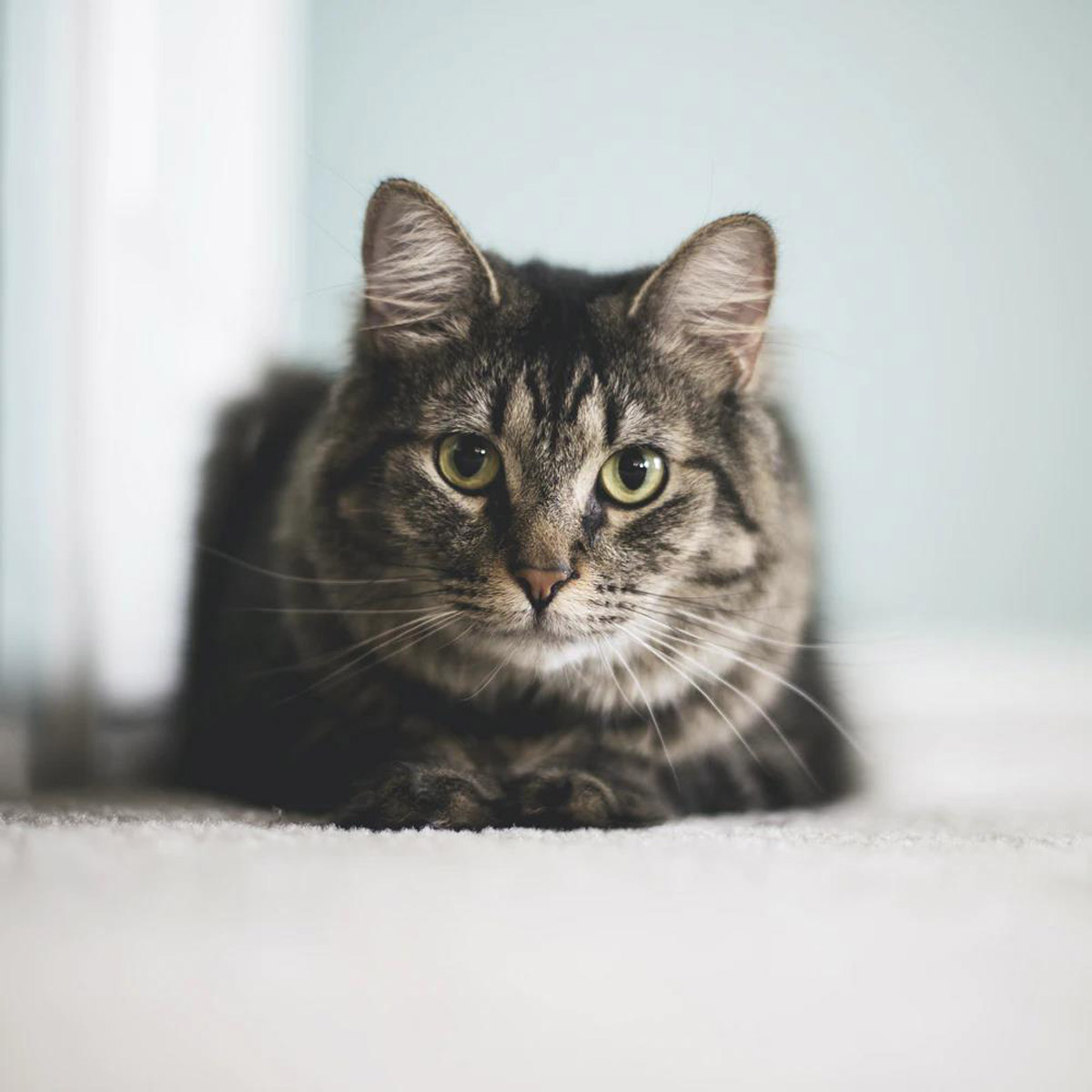
Source: Kari Shea on Unsplash
When your cat becomes an adult, common problems encountered by other cats of this life stage include obesity, dental disease, cystitis (inflammation of the bladder), and heart disease.
Obesity
Scientific data reveals that moderate excess weight shortens life expectancy by as much as 2 years. If this is not enough reason to fight against pet obesity, know that being overweight or obese dramatically increases the risk of:
- Diabetes mellitus
- Heart disease
- Pancreatitis
- Cancers of all types
- Respiratory distress and exercise intolerance
- High blood pressure, which can lead to secondary complications such as kidney and eye diseases
- Joint damage and osteoarthritis (OA), leading to chronic pain
- Besides increased wear and tear on the joints, fat tissue itself contributes to inflammation, which forms a part of the pain associated with OA.
To find out if your kitty needs to make a trip to the vet for some weight control, click here!
Dental disease
Over 70% of adult cats have some form of periodontal disease, which can cause bad breath and pain, and is also a source of infection that can lead to more serious health problems such as heart, lung, and kidney disease.
Symptoms include bad breath, bleeding from the mouth, abnormal behaviours such as dropping food, excessive drooling, hiding, not grooming themselves, and unwillingness to eat due to oral pain. However, the symptoms during the early stages of periodontal disease can be very subtle, so regular annual checks are needed to detect problems early.
Feline Idiopathic Cystitis (FIC)
Feline Idiopathic Cystitis (FIC) is a disease that a number of adult cats develop without any obvious underlying cause. Accounting for about two-thirds of all cases of feline lower urinary tract disease, there is currently no diagnostic test that can confirm if a cat is suffering from FIC, so a diagnosis can only be made by excluding other recognised causes of lower urinary tract diseases.
Clinical signs of FIC include difficulty or painful urination, increased frequency of urination, blood in the urine, urinating outside the litter-box, and overgrooming (especially around the perineum). Sometimes, cats with FIC may have functional blockage due to muscle spasm and severe inflammation, which should be treated as an emergency with your cat taken to a vet immediately!
Cardiomyopathy (Heart Disease)
Cardiomyopathy refers to any disease affecting the heart muscle itself and is the most common form of heart disease in cats, as well as, the most common cause of heart failure. Some underlying causes of cardiomyopathy include:
- Hyperthyroidism
- Hypertension
- Acromegaly (excessive growth hormone production)
- Taurine deficiency
- Lymphoma
- Exposure to toxins
- Hereditary causes
Unfortunately for cat owners, our felines may show no visible sign of the disease during the initial phase, making regular health check-ups (with ultrasound examination) the only way to increase the chances of early detection. Do not skip out on these health checks because cats can sometimes develop clinical signs without prior warning and deteriorate very rapidly!
Mature (7 years – 10 years)
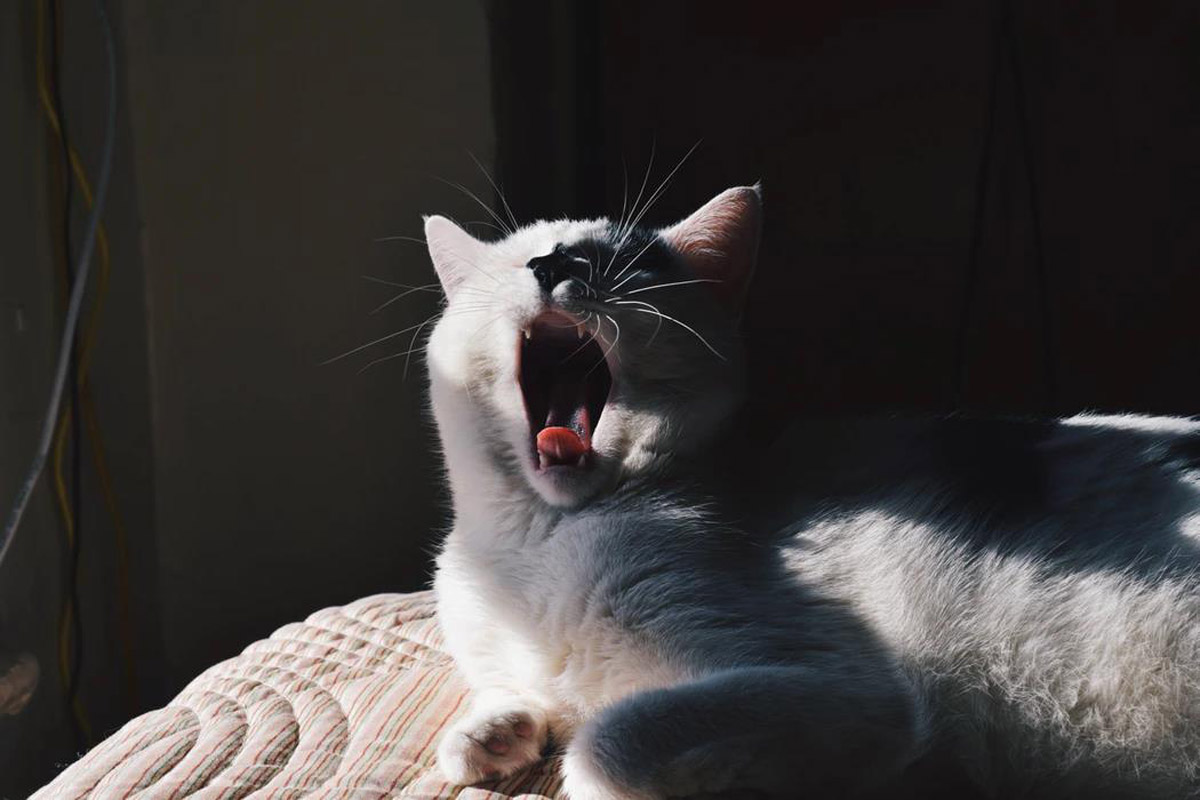
Source: Asqiue Alam on Unsplash
Besides the common health problems that may arise in its adult life, a cat tends to have a higher risk of obesity once it moves into the mature life stage. This is because as cats get older, their metabolic rate and activity level decrease, yet cat owners often fail to adjust their meal quantities accordingly. Weigh your cat often and monitor its body condition score closely!
On top of that, here’s a detailed guide on how to care for a cat as it ages, where you will learn that close monitoring of your kitty for common signs of age-related disease is highly important. This can include telltale signs such as:
- Changes in the coat, skin, and nails
- Unusual behaviours such as aggression or irritability
- Not moving about much
- Not wanting to perch.
Senior (11 years – 14 years) and Super Senior (15+ years)
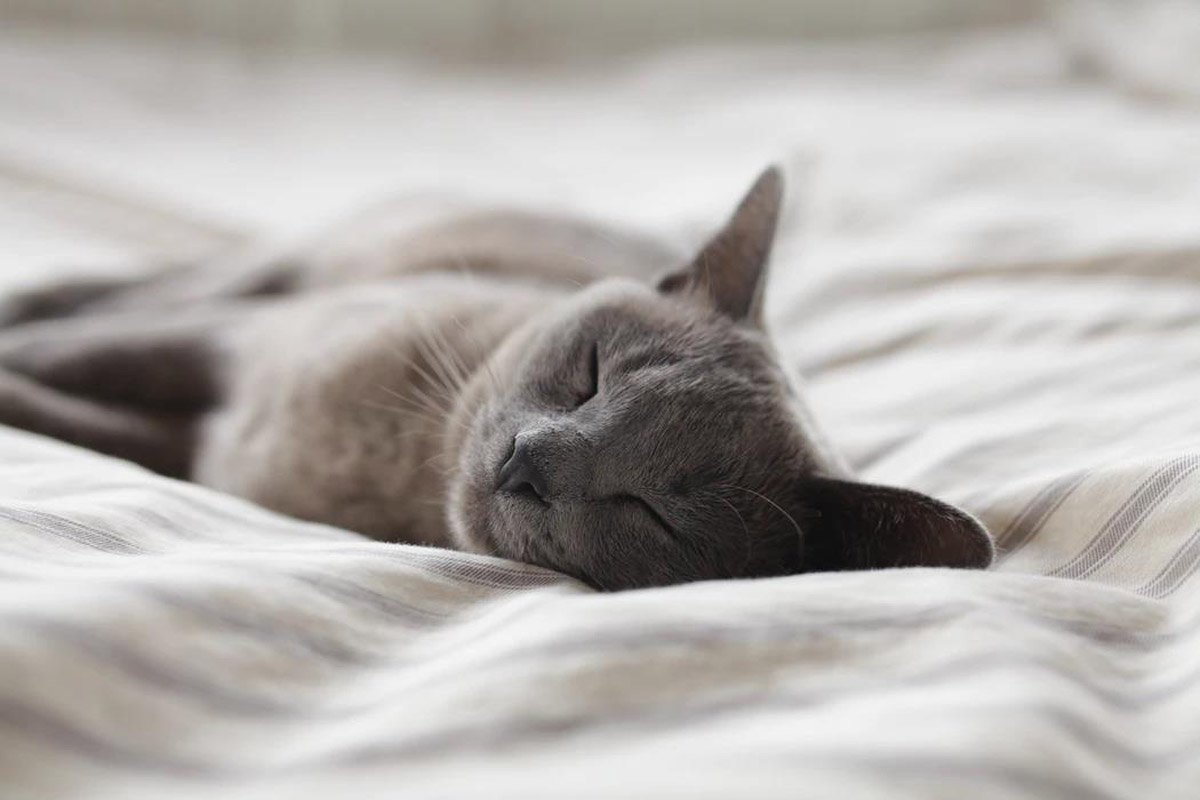
Source: Alexander Possingham on Unsplash
At these stages, your cat would have most definitely started experiencing age-related physical changes due to a decline in physical condition, immune responses, organ function, and sensory and cognitive abilities. Additionally, every cat ages at its own rate but as a general rule of thumb, cats who are 11 years and above will have an increased risk of developing age-related health problems.
These include diabetes, chronic renal disease, high blood pressure, hyperthyroidism, osteoarthritis, and feline cognitive dysfunction, but fret not because many of these diseases are actually treatable! Do not simply assume that every physical and behavioural change that you see in your cat is due to ageing — being aware that it could be a sign of an age-related disease will potentially save your kitty from months or even years of unnecessary suffering.
Older cats may also develop coat and skin problems because they can’t groom themselves as well as they used to, so you will have to help stay on top of that for them! Sarcopenia is also a phenomenon that all healthy, ageing cats will go through, which is the loss of muscle strength and function. To manage it, it is recommended to provide increased proteins that have good digestibility and your vet will regularly do a muscle condition score.
If you wish to learn more about how old age affects felines, read our article here!
Caring for your cat throughout the stages
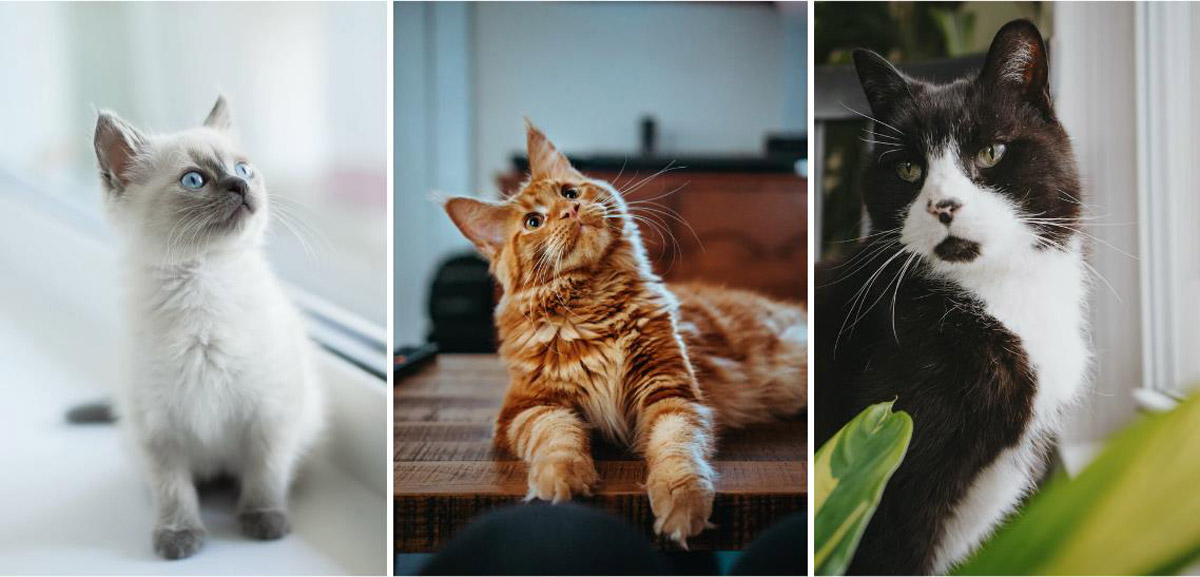
Source (from left to right): Leonsa, Amber Kipp, and Lucas Ludwig on Unsplash
Regardless of the life stage that your cat is at, it goes without saying that only the best healthcare will do for your precious feline friend. This is where cat-dedicated clinics come into play, as compared to the usual interspecies veterinary clinic — certified ISFM Cat Friendly Clinics are tailored entirely to cats only, from the interior to the amenities and their staff.
Cat Friendly Clinics are designed with the comfort of cats in mind and proven to greatly reduce the stress that usually accompanies vet visits. On top of that, they require their staff to be up-to-date in their knowledge of all aspects of feline health and disease, and be well-versed with cat-handling techniques.
This ensures that your vet will provide you with reliable advice and accurate diagnosis in line with your cat’s unique health needs, and that your cat will receive the newest health care available and have access to veterinarian-approved cat care products that might not be readily available at an interspecies veterinary clinic!
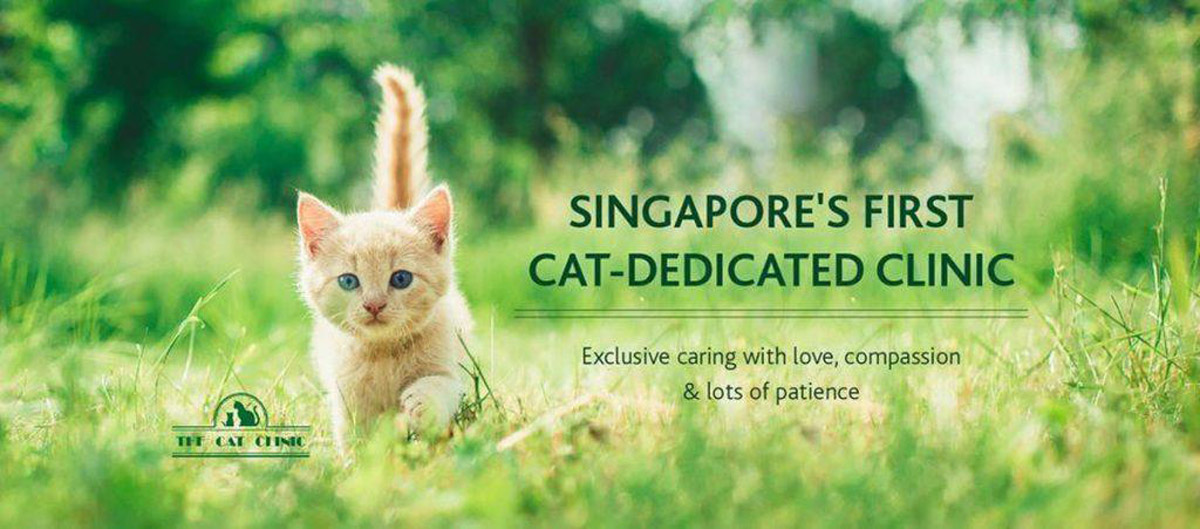
Source: The Cat Clinic
Thankfully for us, one such accredited Cat Friendly Clinic here in Singapore is The Cat Clinic, which is the first-ever cat-dedicated clinic on our shores and a branch of The Animal Clinic, which has been providing quality healthcare for pets since 1979.
To find out more about common health issues in cats or if you have any cat-related enquiries, leave a direct message on The Cat Clinic’s Facebook page and get a response within 24 hours. For medical advice, The Cat Clinic also provides telehealth services at https://animalclinicsg.smart.vet/!
The Cat Clinic
Address: Blk 109, Clementi Street 11, #01-33
Tel: 6873 0014 / 6873 0024
After-hours emergency: 6333 5550
Teleconsultations & telemedicine: https://animalclinicsg.smart.vet/
Website
Facebook
Instagram








